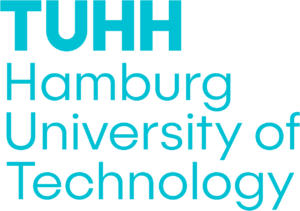Overall Objectives
The main objective of the Vil2Bio project is to design and optimize a hybrid energy systemcombining village-scale biogas production with pyrolysisin biomass stoves for off-grid sustainable clean cooking and cold production for sustainable energy delivery to priority domestic uses (heating and cooling) in African rural areas, and to deploy the technologies at pilot and testing sites in Morocco and Kenya, aiming at maximizing interactions with citizens, professionals and researchers in a living lab approach.
Context: why is this action necessary?
The Vil2Bio project investigates a wide range of technologies to cover the needs of the African population in the short, medium and long-term, ranging from simple technologies such as biogas reactors, biochar briquettes, to intermediaire, more sensitive technologies such as biogas engine and large-scale automatic biomass pelletization systems, and more complex technologies such as microalgae (cyanobacteria) cultivation.
Still, all these technologies might have a role to play in future African energy systems, especially at the Food-Energy-Environment nexus to preserve the environment of African populations and make an efficient use of resources in a circular economy approach. In particular, the integration of robust technologies into more efficient hybrid energy systems (such as biochar production combined with biogas production) will be important for the future. The project includes a large share of on-site studies and evaluations in contact with local populations in Morocco (USMS) and Kenya (UONBI, KIRDI), including women who are involved in food handling (cooking and cooling) and agriculture (gardening) along with process simulations, in synergy with experimental studies.
What are the concrete actions that will be implemented?
Two demonstration pilots will be installed and operated, near Settat in Morocco, and near Nairobi in Kenya within the project.
The Kenyan pilot will comprise an automatic briquette production system already operating at KIRDI institute, along with TLUD pyrolysis stoves and charcoal burners manufactured by the institute, which will be tested at the premises of a small on-farm biogas plant in Kenya. For energy production, small biogas stoves from Chinese and Indian manufacturers used for domestic cooking will be evaluated and installed on the pilots. The Moroccan pilot will include an Indian-type 10m3 biogas reactor developed in Morocco by the local company “Biodôme”, together with a 30L Indian-type batch TopLid Up-Draft (TLUD) pyrolysis stove. On the Moroccan pilot, biogas will be cleaned in low-cost water scrubbing system, and fed into a small Chinese-type gas engine generator.
What is the expected impact of the project?
Vil2Bio will provide an innovative hybrid energy system combining villagescale biogas production with pyrolysis in biomass stoves for off-grid sustainable clean cooking and cold production at testing sites in Morocco and Kenya. The biogas systems deployed at pilot-scale will move the technological knowledge towards larger-scale and municipal-scale (village-scale) systems for Africa. Biogas will power a gas engine, combined with PV panels in a smart microgrid, provide stable off-grid electric power to a flexible-input fridge filled with PCM packs.
Optimized design and operation of pyrolysis cookstoves, biogas stoves and charcoal burners will provide a cleaner, less work-intensive and more efficient replacement to traditional cookstoves, firewood and charcoal, sparing time to women and children. The biogas stoves will provide an alternative to LPG retail. Biochar pellets produced from agro-industrial waste and the solid fraction of digestate from the biogas plant will prevent deforestation, and fertigation with cyanobacteria cultivated on the biogas effluent will prevent land degradation.










